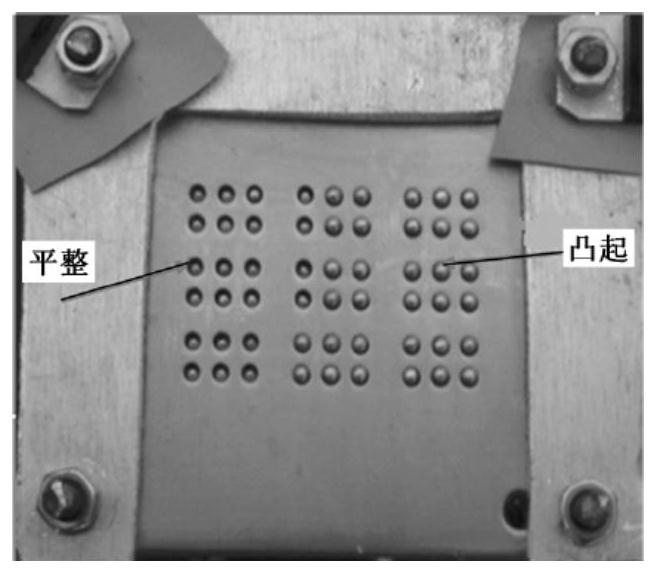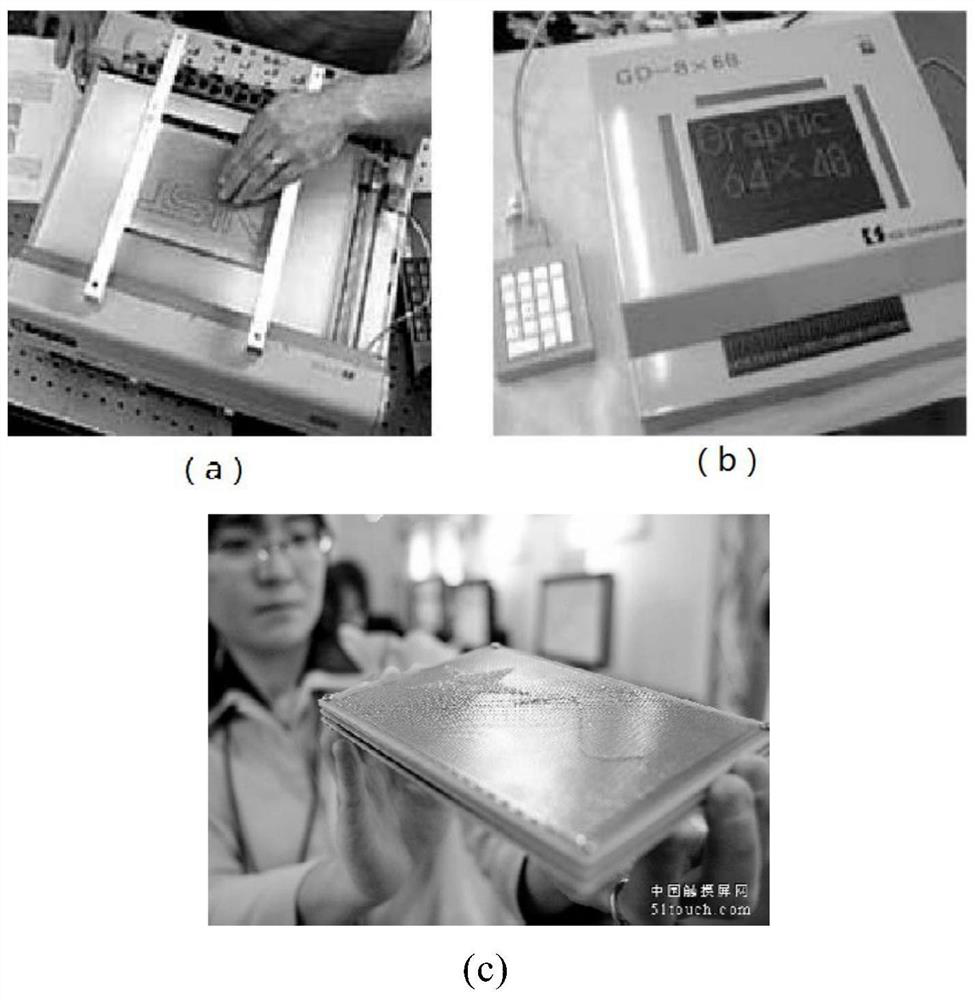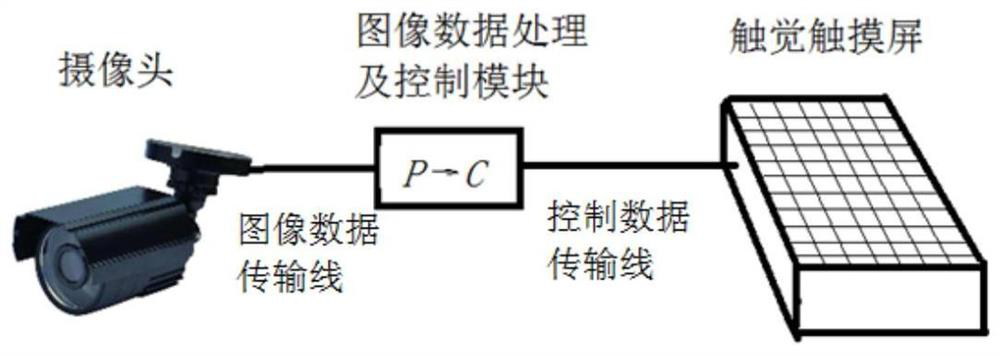A tactile touch screen
A touch screen and tactile technology, applied in instruments, computing, electrical and digital data processing, etc., can solve the problems of poor real image restoration, inability to carry around, large size, etc. low weight effect
- Summary
- Abstract
- Description
- Claims
- Application Information
AI Technical Summary
Problems solved by technology
Method used
Image
Examples
Embodiment 2
[0067] In embodiment 2 and implementation 3, its control quantity C (ij) is magnetic field strength, light intensity, thermal radiation intensity and voltage respectively, is sent to the signal in each concrete pixel by control data transmission line by image data processing and control module The generator 8, or the voltage lead 10, is used to control the up and down displacement of the contact rod 1.
[0068] Figure 7It is an embodiment of the tactile touch screen of the present invention. It is a matrix composed of single pixels arranged in rows and columns. In the top view, you can see the touch rod 1 of each pixel, and all the touch rods are fixed on the substrate through the telescopic rod 7 (blocked in the figure) 9 or on the fixed plate 6. The 16x12 matrix drawn in the figure can also be a matrix with other numbers of rows and columns. In theory, the smaller the protruding area of the touch rod 1 of a single pixel, the more the number of single pixels that can be a...
PUM
 Login to View More
Login to View More Abstract
Description
Claims
Application Information
 Login to View More
Login to View More - R&D
- Intellectual Property
- Life Sciences
- Materials
- Tech Scout
- Unparalleled Data Quality
- Higher Quality Content
- 60% Fewer Hallucinations
Browse by: Latest US Patents, China's latest patents, Technical Efficacy Thesaurus, Application Domain, Technology Topic, Popular Technical Reports.
© 2025 PatSnap. All rights reserved.Legal|Privacy policy|Modern Slavery Act Transparency Statement|Sitemap|About US| Contact US: help@patsnap.com



